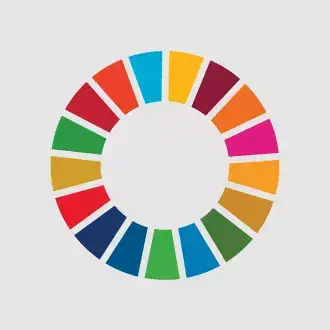
“Over 80 percent of the world’s population identifies with a spiritual tradition. If we truly want to motivate individuals to collective action across sustainable development, we need to tap into the common values of faith, which advocate care for people and the planet.”
- Faisal Bin Muaammar, KAICIID Secretary General
Although governments and secular civil society organizations have important roles to play in achieving these economic, social, and environmental goals, they can’t do it alone, nor should they. The only way we can truly succeed and leave no one behind is by harnessing the unique strengths religious leaders and communities bring when addressing these complex global challenges.
Faith communities make significant contributions to humanitarian aid, health care, education, poverty eradication, and environmental protection wherever the need is greatest. They move trillions of dollars and help billions of people the world over, improving social justice, human rights, and sustainable development across political and physical borders. As a result of this good work, FBOs have long been considered experts in the field of sustainable development and are vital partners in implementing the SDGs.
FBOs and their networks have established a critical level of trust and legitimacy in their local communities. Because of this, they are uniquely positioned to further sustainable development in ways that other organizations cannot.
FBOs have been advancing the SDGs’ underlying principles for decades, long before they were formally set in 2015. In Uganda, Finn Church Aid equips young people with job training and courses in micro-entreprenuership (Goal 4: Quality Education). In India, Bodhicitta Foundation embraces Buddhist teachings to end child marriage by providing girls of all faith backgrounds with housing, accommodation, and education (Goal 5: Gender Equality). In Malawi, Khalsa Aid follows the Sikh principle of serving humanity to help rural communities create sustainable water sources (Goal 6: Clean Water and Sanitation). In the United States, New Mexico Interfaith Power and Light mobilises faith communities to install solar panels in communities which lack access to electricity (Goal 7: Affordable and Clean Energy). In Mexico, Habitat for Humanity volunteers are guided by the Christian principles of service, respect, and “love in action” as they build adequate housing for families whose lives have been devastated by natural disasters (Goal 11: Sustainable Cities and Communities).
These noteworthy initiatives (and countless more) are emblematic of the sustainable development efforts FBOs and religious institutions are working to implement in every country. In many cases, FBOs play a vital intermediary role between donor and recipient communities, bridging trust and culture gaps with compassion and local knowledge to meet critical needs.